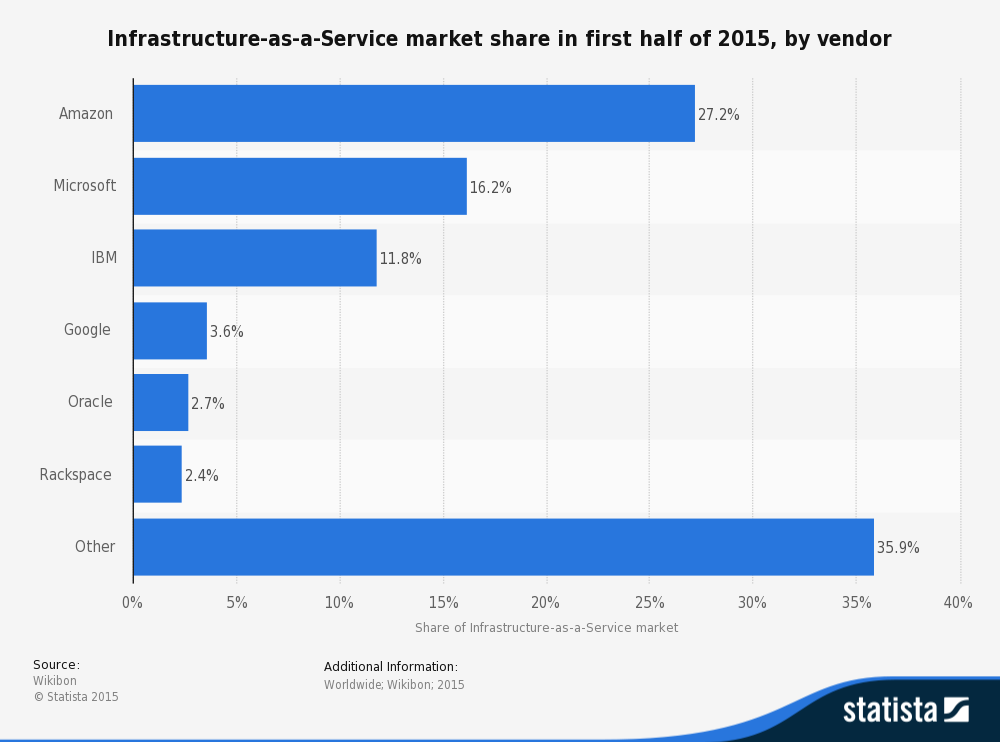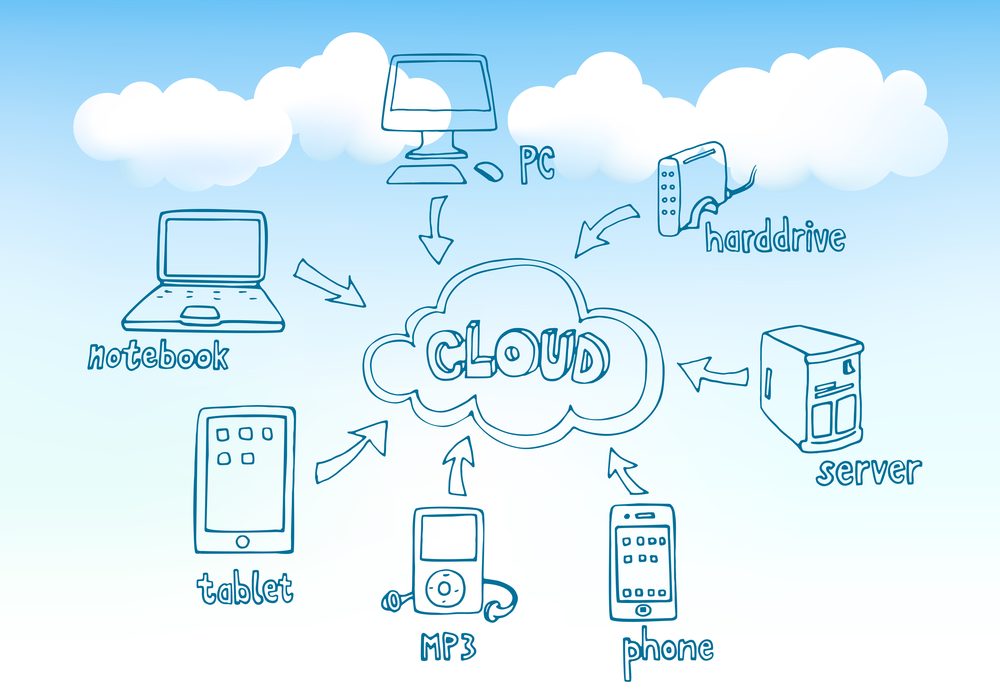The fight to become the top cloud services provider just got much hotter, with Oracle jumping into the fray with both feet. It wasn’t that Oracle wasn’t there in the cloud race and suddenly decided this was what they wanted. After denouncing cloud computing in not-so-glowing terms back in 2008, Oracle eventually realised the error of its ways and joined the bandwagon. Their overall cloud revenues during the most recent quarter was nearly a billion dollars, with most of the money coming from their Software-as-a-Service and Platform-as-a-Service units and a relatively small amount coming from the Cloud Infrastructure-as-a-Service segment.
Oracle’s bread and butter is the infrastructure market, but not the cloud-based one. They made billions of dollars selling software and hardware components to companies that were managing their own IT infrastructures. Amazon broke that market’s future into several pieces by offering to manage IT infrastructure for a monthly fee, and since the launch of Amazon Web Services in 2006 the company’s cloud offerings have gone from strength to strength, reaching nearly $7.8 billion in annual revenues last year.

Source: Statista
Amazon clearly showed that there is money to be made in this market, and several tech majors like Microsoft, IBM and recently Google as well have followed their cue. But make no mistake; AWS is by no means a pioneer in cloud infrastructure services, but they’re the first to make it mainstream and create a huge business out of it. In fact, companies like Google and IBM have been using cloud for their own purposes for years. The only difference was that they didn’t really get into providing cloud infrastructure on a mass scale to other companies.
Naturally, by this time, Oracle started to worry because if more and more companies kept opting for third party providers to take care of their infrastructure, who’s going to buy their products?
There are still several issues that the cloud providers need to overcome, such as porting existing large scale companies that are managing their own IT infrastructure over to the cloud. There are several security concerns that they need to address as well, and then there is also the problem of migrating from existing self-owned-and-run solutions to a third-party one. Migrations are easy to talk about but hard to do, and there is always a cost factor as well as a fear factor attached to them as well. That’s why the idea of private and hybrid cloud came into the picture. With this model, companies get to keep their infrastructure but also leverage the instant scalability of cloud as well as the robust functionality of cloud computing.
The cloud industry is still in its early stages and there is every indication that a mass transition of enterprise companies could happen at some point in the future. A lot of the forward-looking companies that will play a huge role in the future have already jumped on the cloud.
Amazon lists GE, Siemens, Unilever, Netflix and many more on their cloud, while Microsoft has NBC Universal, 3M, UBER, Heineken and many more. These are just a few names, and the list actually keeps going on and on. What is amply clear is that while there are several large companies still sitting outside the influence of cloud, the smaller ones are steadily marching towards it.
From Oracle’s perspective, the slow action of larger enterprise companies to move into the cloud does give them some amount of breathing space. But it does not give them indefinite freedom to continue with their legacy business. It cannot afford to sit around and watch itself get pushed out of the market by the cloud industry.
And that’s why it is ramping up its efforts double-time. At the recent OpenWorld Oracle conference last month, company co-founder Larry Ellison fired a salvo at Amazon, saying that their lead in cloud infrastructure is over. Experts in the industry are saying that Oracle is talking out of its hat and that will never happen, and that might well be true. But Oracle has certain advantages that companies like Amazon do not, such as the long and profitable relationships with some of the world’s largest companies on their client list, and their dominance in the database space – a vital component of any IT infrastructure.
They will try to use these strengths along with their other expertise in areas like ERP to make their offering an attractive one, and in all likelihood will want to start a price war with other providers.
But the truth is, even Larry Ellison knows that Amazon is still the company to beat when it comes to cloud infrastructure services, and it will stay that way for a very long time.
Thanks for reading our work! If you’re reading this on Apple News, please favorite the 1RedDrop channel to add us to your news feed, or Like our page on Facebook. Please bookmark our site for more insightful articles on current and future technologies that are changing our lives.



